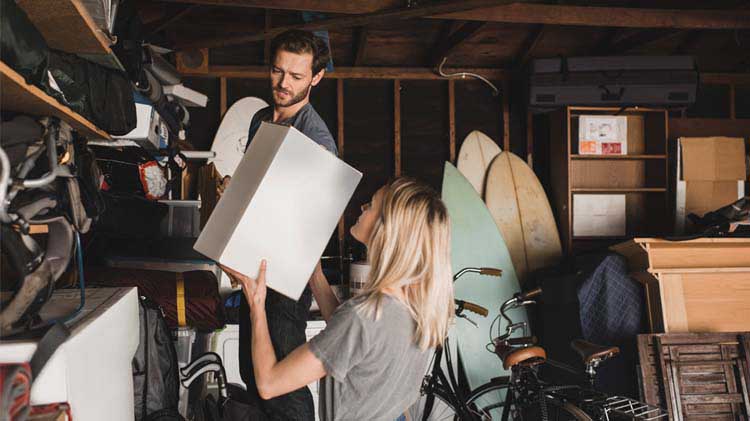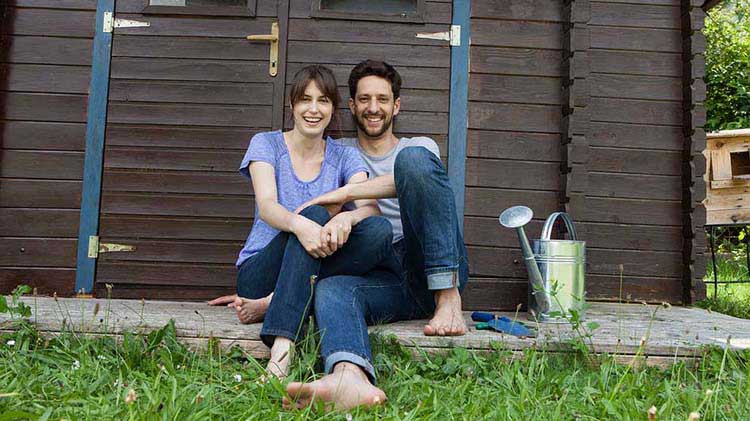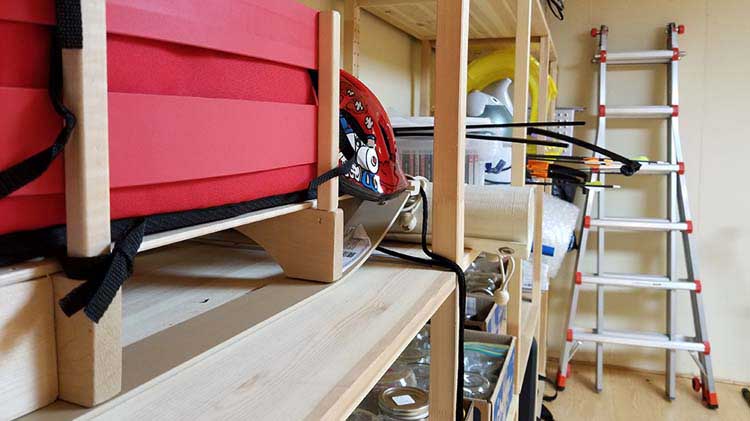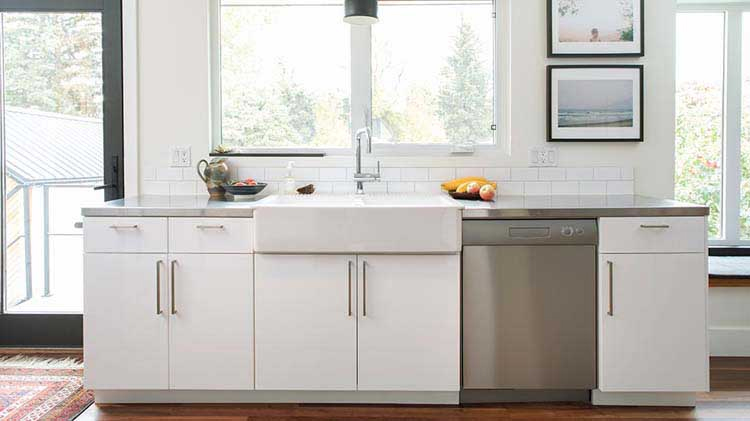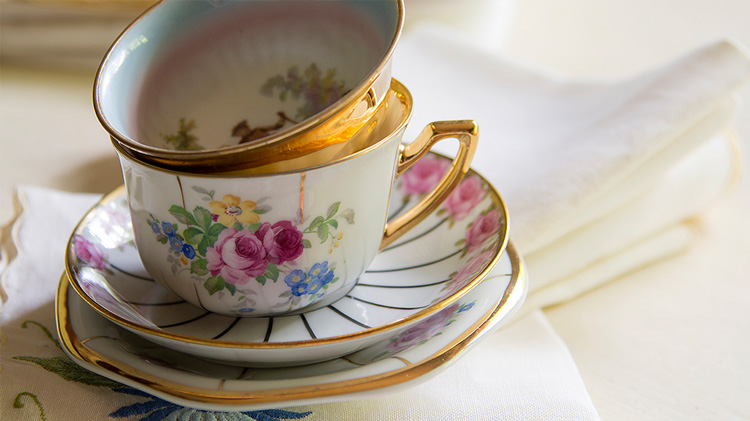What not to store in the garage
Wondering what to store or what not to store in the garage? Some items may surprise you. Learn about garage storage ideas and how to help keep your garage safe.
Skis. Bikes. Sports balls of all sorts. A lawnmower. Old toys. It's easy for a garage to turn into a catchall storage unit. For most items that's fine, but some things simply don't belong in a garage, and they can even become a home hazard without proper storage protection. Read on to learn about garage organization tips.
Things you should never store in the garage
- Extra fuel or oil — stashing portable gas cans and propane tanks in the garage can be dangerous, as highly flammable fuel poses a leaking risk. If you store any fuel in the garage, do so only in dedicated, leak-proof containers that are out of the reach of children, out of the paws of pets and away from potential sources of fire ignition such as water heaters or power tools. A shed away from your home is a better storage spot.
- Oily rags and greasy towels — leave or dispose of these elsewhere. Spontaneous combustion could occur from the rags which might lead to a fire in your home.
- Paint or home-improvement chemicals — some liquids, such as latex, freeze at the same temperature as water and may need a temperature-controlled environment. Check the manufacturer's directions for guidance.
- Indoor furniture — unless your garage is climate-controlled, its interior can be subject to fluctuations in heat and humidity which can warp wood. Pests such as rodents may root (and ruin) upholstery, fabric or mattresses. If the garage offers your only option for furniture storage, find a clean, dry spot that's elevated off the floor. Thoroughly clean and take apart furniture before wrapping or covering.
- Clothing or sleeping bags — a better spot for out-of-season clothing or sleeping bags is a sealed container in an attic, the back of a closet or in basement storage. In a garage, clothing/bedding may soak up fumes and dust and can be at risk of insect or pest damage.
- Food — this includes any food for wildlife, pets and humans. Perishable items can be tempting for rodents and vermin, and canned food may spoil more quickly in temperature extremes. Also think twice about that extra fridge in an unheated and un-air-conditioned garage, as the appliance may struggle to operate efficiently as temperatures fluctuate.
- Anything fragile or valuable — artwork and electronics are just a few of the items that need the stability of climate control to help prevent damage to expensive or delicate elements.
- Paper items — including books, important files and photographs. Books can encourage silverfish and other insects that thrive in dark and damp environments. These bugs love to eat starchy substances, like the glue that binds books. And important files and photographs are better off in climate-controlled environments.
- Firewood — may seem like a good item to store in the garage because it’s out of the elements and handy to use for both indoor fireplaces and outdoor firepits. However, firewood attracts many pests like termites, spiders, and rodents that you do not want in your garage, especially if it’s attached to your house. Firewood also needs air circulation to stay dry for burning. A garage that is not climate- controlled could be too humid. Ideally, store firewood outside, 20 feet away from any structures and on a rack that is covered from the elements.
What to store in your garage
Consider storing the following types of items in your garage.
Get a homeowners insurance quote
Want to protect your home?
- Lawn care tools and equipment — the garage can be an ideal place to store the tools and equipment you use outdoors. A garage wall organizer could help minimize clutter. If it becomes too crowded, consider a storage shed.
- Gardening supplies — extra pots, bags of potting soil and your small garden tools can be neatly stored in bins.
- Hoses — after draining your garden hoses, place them in the garage to store them out of the way for the winter.
- Sports equipment — sporting goods made to be used outdoors can easily be stored in the garage without having to worry about warping or cracking.
- Patio furniture and pool tools — stack these items neatly when not being used.
- Plastic storage bins — instead of cardboard boxes, plastic bins can help protect your items and are more resistant to the changing temperatures and moisture levels.
- Vehicles — of course it's fine to store cars, motorcycles and ATV's in the garage.
- Extra car gear and supplies — if you have the room, consider storing your roof rack, wiper fluid, antifreeze and air pumps.
After your garage organization is finished, take time to review what's in your basement storage and under your sink.
